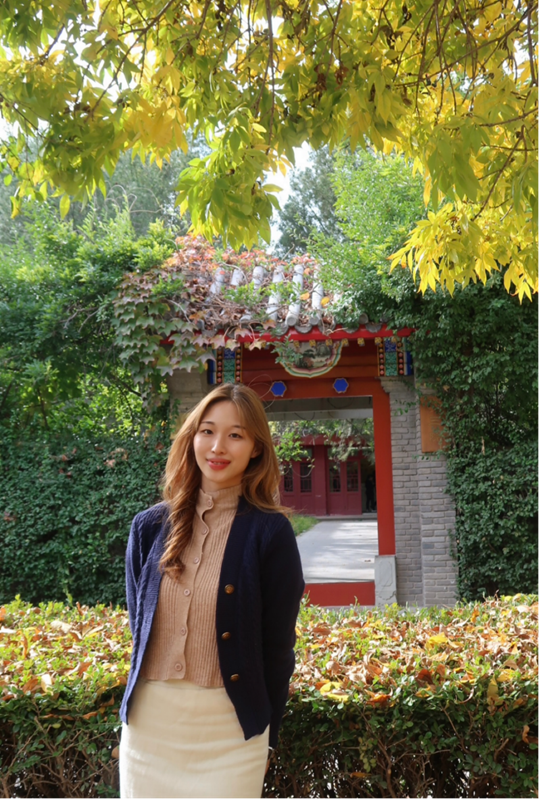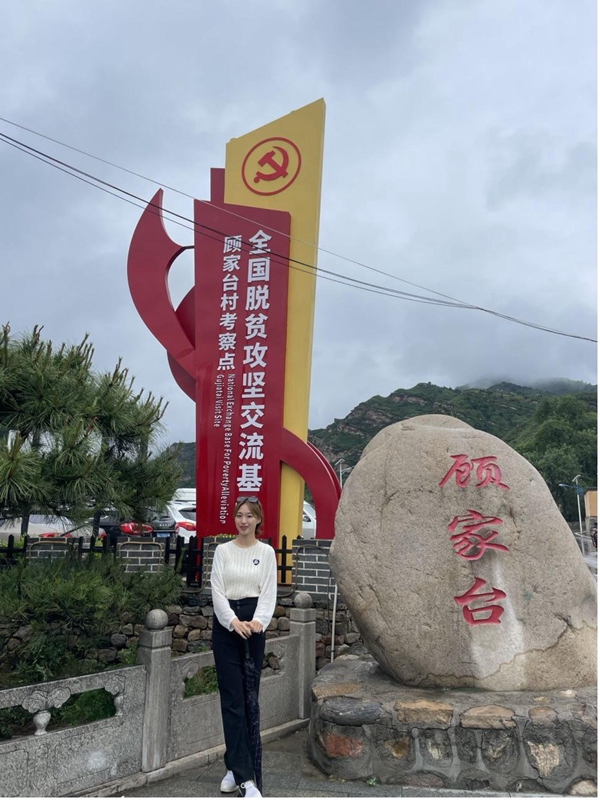




- BRNN
- BRI News
- BRNN News
- Database
Official Documents Polices and Regulations
Inter-government Documents International Cooperation BRI Countries
Business Guide Economic Data BRI Data
Trade
Investment Projects Latest projects
Cases - Content Pool
About 35 years ago, a university in South Korea published its first Chinese-Korean dictionary. To commemorate this significant achievement, the university organized a group of students to study in China. Among them were a female student majoring in Korean language education and a male student majoring in law.

Bae Hye-eun on the campus of Peking University. (Photo provided to People's Daily)
While studying in China, they attended classes at Beijing Foreign Studies University (BFSU) and Peking University. With the assistance of BFSU teachers, they co-authored a Korean language textbook titled "Introduction to Korean" for Chinese students.
Upon returning to South Korea, these two students engaged in work related to Chinese culture and eventually started a family - they are my parents.
From a young age, I would flip through that dictionary while listening to my parents recount their stories in China, developing a strong interest in Chinese history and culture. Later on, I went to BFSU to study English, following in my parents' footsteps to the land of China.
In a campus bookstore, I once again saw that old dictionary, and memories long forgotten came flooding back. Like my parents, I hoped to gain a deeper understanding of Chinese culture and contribute to fostering friendly relations between the people of South Korea and China.

Bae Hye-eun is visiting Gujiatai village in Fuping county in north China's Hebei Province. (Photo provided to People's Daily)
To deepen my understanding of Chinese culture, I pursued master's and doctoral degrees at Peking University's School of Arts. During this time, I visited several rural areas in China and was amazed by the vitality of development there.
In the early summer of 2019, I participated in a workshop co-hosted by Peking University and Macao Polytechnic University in Bicheng village, Baima township, Xuanhan county, and Dazhou city in southwest China's Sichuan Province.
During the workshop, I brainstormed with other participants on how to improve the living conditions of villagers through rational protection and utilization of local cultural resources. Based on the workshop's recommendations, local villagers, teachers and students worked together to initiate a rural cultural festival. Now in its fifth year, this festival has attracted more and more people to venture into the depths of the beautiful countryside.
Later, under the guidance of my mentor, I joined a research program with my classmates to empower rural vitalization through the cultural industry. We explored cultural resources in Baoding, Shijiazhuang and Xingtai in north China's Hebei Province. We had lively discussions on transforming high-quality cultural resources into cultural products.
Over four days, we visited seven different villages. Our most memorable experience was meeting a woman in Yujia village in the central-western part of Jingxing county, Hebei Province. It is home to the descendants of the famous Chinese politician and national hero Yu Qian during the Ming Dynasty (1368-1644). As a member of the Yu family, the woman proudly shared with us the stories of her family, showing a sense of cultural confidence and highlighting the value and significance of exploring the cultural resources in this area.

Bae Hye-eun is enjoying a coffee while watching ice skaters glide across the frozen lake on the campus of Peking University. (Photo provided to People's Daily)
Participating in these two Chinese rural vitalization projects made me feel the unique charm of Chinese rural areas. The Chinese land is dotted with many picturesque rural landscapes worth cherishing and protecting.
When I returned to Beijing, I found that there were also many well-protected precious cultural heritage sites. The Yannan Garden (Yan Nan Yuan), located on the campus of Peking University has a history of nearly 100 years. It houses over a dozen small buildings scattered among flowers and grass. Many renowned scholars once lived there.
The historical architectural complex of the Yannan Garden was included in the first batch of historical buildings in Beijing in 2019 and was recognized by UNESCO with the 2023 Asia-Pacific Awards for Cultural Heritage Conservation.
It exudes a strong historical charm and cultural atmosphere. We have meetings, lectures and academic discussions here every day, and several generations of teachers and students once walked, lived and studied here. I deeply realize that each generation's responsibility is to better inherit and develop traditional culture.
My bond with China stemmed from my parents, as they passed down their love for Chinese culture to me. In a corner of the time-honored Yannan Garden, I quietly document my story with China and look forward to passing on these beautiful memories to the next generation.
(Bae Hye-eun is a South Korean student at Peking University.)

Tel:86-10-65363107, 86-10-65368220, 86-10-65363106